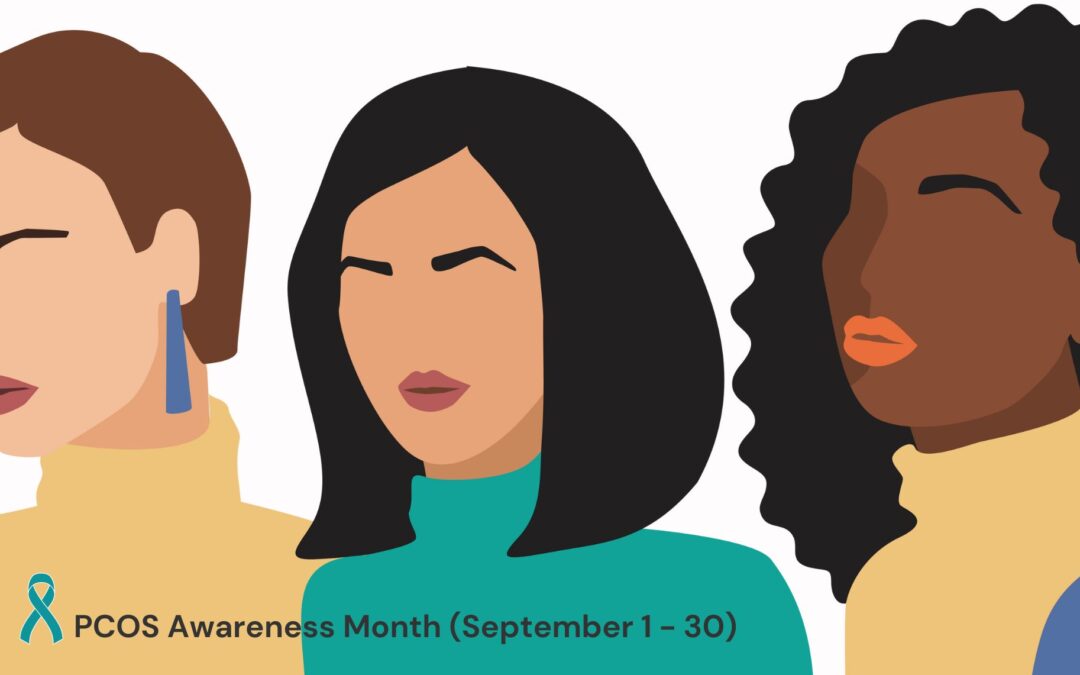Epidemiology:
PCOS (or Polycystic ovary syndrome) is one of the most common endocrinological and reproductive disorder in women, affecting up to 10% overall. Certain ethnicities are more at risk of developing the disorder. There are both hereditary (family history) and lifestyle factors (excessive weight and lack of exercise) that cause and contribute to the disorder.
What is PCOS and how is it diagnosed?
The disorder is characterized by:
- hyperandrogenemia or higher than normal androgenic hormones
- the clinical effects of those hormones such as acne or hirsutism (excessive male pattern hair growth)
- polycystic appearance of ovaries (multiple small cysts) on ultrasound
- oligo-anovulation (infrequent periods or absent periods)
The diagnosis is made when 2 or more of these findings, known as the Rotterdam criteria, are noted in the patient. Other endocrine disorders with similar findings must be ruled out before PCOS can be diagnosed.
Associated conditions and accompanying clinical findings
PCOS has associated conditions and accompanying clinical findings. Here is a list to review but not limited to:
- insulin resistance or pre-diabetes
- type 2 diabetes
- high cholesterol and triglycerides
- hypertension
- the combination of the above, which is known as the metabolic syndrome
- increased weight or obesity
- uterine lining anomalies
- sub fertility and infertility
Signs and symptoms of PCOS
Patients usually present signs of irregular periods, infertility or signs of hyperandrogenism such as acne, hirsutism, thinning hair, etc.
Infertility
Fertility is impacted through infrequent or absent ovulation, compromised egg quality due to hormonal imbalances associated with the disorder and endometrial or uterine lining sub-optimal quality and receptivity.
Treatments
The goal of treatments is two-fold, which includes relief of symptoms and the prevention of complications. Choice of treatment is dependent on whether or not the patient is currently seeking a pregnancy.
Lifestyle changes
Weight loss and control through changes in diet (low calorie, low carbohydrate), and regular exercise should be part of any medical approach to PCOS to lower insulin resistance, help manage the metabolic syndrome and possibly restore ovulation. Certain dietary supplements are also recommended in the context of PCOS.
Relief of symptoms
Acne and hirsutism can be treated topically or locally through dermatological treatments or mechanical removal of hair. Prevention of further hyperandrogenism and its effects is usually achieved through birth control pills (if not attempting pregnancy) or other anti-androgen oral medication.
Menstrual cycles are usually regularized using birth control or cyclical progesterone only (given in the second half of the cycle). This in turn helps protect the uterine lining from prolonged exposure to estrogen only (without progesterone) and its potentially negative effects (pre-cancerous and cancerous lesions).
Fertility Intervention
In addition to lifestyle changes, the goal on fertility interventions is to trigger regular ovulation and improve egg and uterine lining quality.
Medications used to induce ovulation include those that lower insulin resistance (such as Metformin), those that relatively lower estrogen levels (such as letrozole, clomiphene, tamoxifen), and gonadotropins that control egg formation, ovulation and steroid hormone production. These medications can be used in the context of ovulation induction with attempt at pregnancy at home or combined with fertility treatments such as IUI (intra-uterine insemination) or IVF (in-vitro fertilization).
For more information about PCOS, please reach out to your family physician and have them refer you to a fertility specialist. Remember, you do not need to face these challenges alone!
Fertility Friends Foundation is here to make a difference!
